Opinion
*A CASE FOR “AMOTEKUN CORPS” IN KOGI WEST*
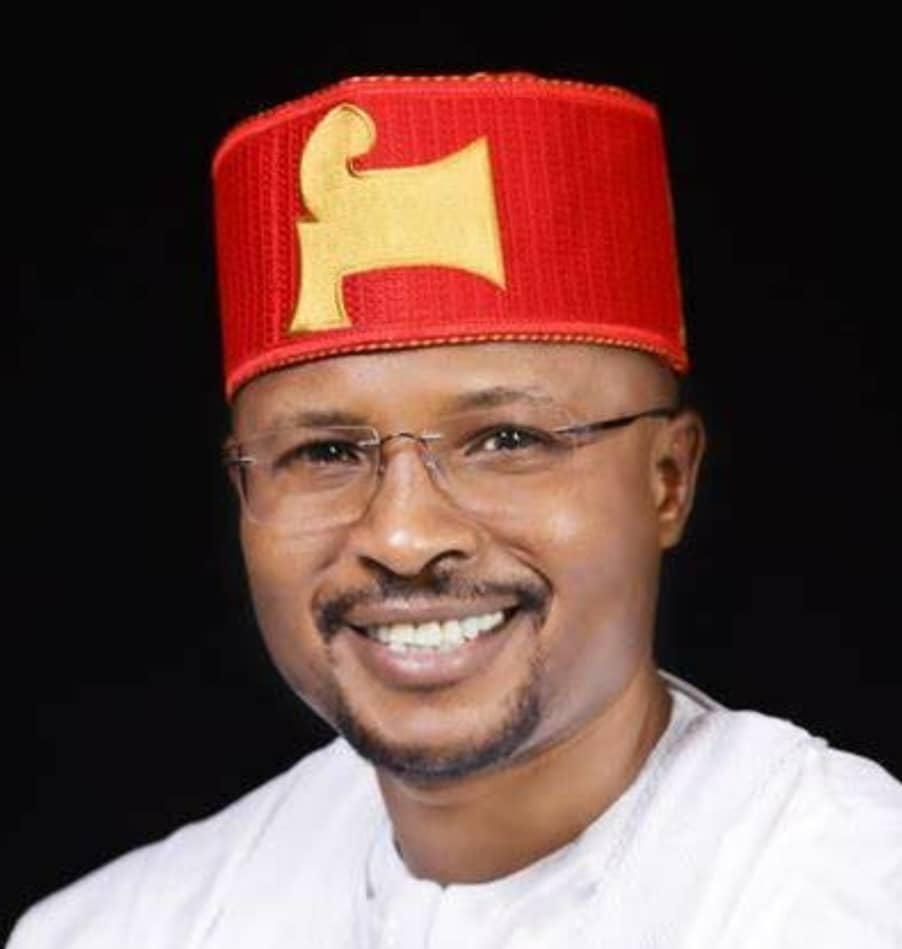
*By Tunde Olusunle*
It had festered for long. The wanton trespass, the emboldened criminality, the mindless murders, the reckless disruption of the rhythm of day-to-day activities of several communities in Nigeria’s South West. Formal and informal intelligence, fingered voyaging Fulani herdsmen as prime perpetrators of the crimson regime upon the Yoruba hemisphere. The pastoralists herded their cattle from the nation’s north, down south. They fed and fattened their livestock on farmlands owned by landowners, with unbelievable impunity. Aboriginal dissenters to such roughshod rides through their sweat-grown farms, were often sent to early graves. Luckier escapees, most times left with scars to last a lifetime. To confirm that they were on a mission to destroy, maim and murder, they moved around with deadly machetes and sophisticated weapons, beyond regular arms admissible for self protection, as they rampaged through the zone.
Beyond farmlands in the recesses of the Yoruba country, kidnappers, armed robbers and killers took over and terrorised roads and expressways in the South West, with uncommon boldness. They routinely caused gridlocks on roads like the all-important Sagamu-Ore-Benin highway, in the discharge of their criminal ventures. They would move from vehicle to vehicle dispossessing commuters of their belongings and shooting at random, killing the hapless. They abducted travellers and would subsequently request for ransoms from the families of their victims. At other times, they just murdered their victims like they did to Olufunke Olakunrin, daughter of the respected Yoruba leader, Reuben Fasoranti, on the same road under reference, in June 2019. Fortuitously, her killers were found, prosecuted and sentenced to death three years later.
Governors of the South West states, unanimously afflicted by this scourge, agreed in January 2020, to establish in their various states, a security outfit to be known as *Amotekun.* A Yoruba word, *Amotekun* means “cheetah.” The animal is a member of the global “big cat” family in the animal kingdom, which are apex predators. Creatures in this bracket which include lions, tigers, leopards, jaguars, are famous for stealth, speed and precision in preying on their targets. All six states in the region: Lagos, Ogun, Oyo, Osun, Ondo and Ekiti, signed up for this initiative, which was driven from the very top by the governors of each state. The South West states are famous for their historical collaboration on issues of the socioeconomic wellbeing of their states and people. The *Amotekun* concept is emplaced as a homegrown complement to the endeavours of existing intelligence and security organisations, in securing lives and property. It is not a rival, but a partner with preexisting agencies in the intelligence and security ecosystem. This typically consists of the military, the police, the Nigerian Security and Civil Defence Corps, (NSCDC) and the Department of State Services, (DSS).
Across the six South West states, *Amotekun* is charged primarily to protect persons, property and carry out emergency response services. The Corps systematically gathers, documents, evaluates and analyses data and information to convert to actionable intelligence for tactical, operational and strategic goals. It shares intelligence about crime in progress; suspicious activities, criminal suspects and other criminal activities. *Amotekun* collaborates with similar security agencies including but not limited to Lagos, Ogun, Oyo, Osun, Ondo and Ekiti states in deterring kidnapping, terrorism, disruption of livelihood, criminal damage to property, cultism, highway robbery and other criminal activities. It ensures that all persons travelling along highways, major roads, remote areas, hinterlands and forests are free to engage in their normal activities without fear or hindrance. *Amotekun* also assists the police in carrying out any other lawful activity aimed at maintaining law and order within their areas of jurisdiction. The operational ambit of the Corps could indeed be broader.
Since the enthronement of *Amotekun* in the six core Yoruba states five years ago, the organisation has complement the enterprise of statutory security outfits in notable measure. It has foiled robberies, disrupted kidnappings, stemmed open-ended trespass and destruction of farms by marauding herdsmen, and rescued potential victims and casualties of criminal schemes. As recently as Sunday February 15, 2025, *Amotekun* foiled a robbery on the notorious Sagamu- Odogbolu- Ijebu Ode, on the Lagos-Sagamu-Ore-Benin expressway. One of the suspects was neutralised, while a second one was arrested during a gun duel. The suspect arrested led *Amotekun* operatives to the hideout of the gang, where another suspect who had earlier fled during the gun duel, took refuge. Just last week, February 10, 2025, the Ondo State Command of the Corps rescued five victims of a kidnapping episode on the ever recurring Benin- Owo road. Such is the serially documented efficacy of *Amotekun* in its various theatres of operation.
Worthy of note is the fact that the topmost echelons of *Amotekun* leadership across the South West, are very senior retired military and police officers, not below the ranks of retired Brigadier-General or Assistant Inspector General of Police, (AIG). The Oyo State outfit for instance is headed by Brigadier-General Kunle Togun, while the Ogun State formation is led by Brigadier-General Alade Adedigba. The Chairman of the Osun State variant is AIG Wale Abbas, while Brigadier-General Olu Adewa leads the Ekiti State *Amotekun* command. This underscores the seriousness with which the outfit is organised and deployed. Our reservoir of ex-servicemen in our communities, local hunters, vigilantes and youths can constitute the core of the operatives.
Recent criminal incidents in the the Okun country in Kogi State and Kogi West senatorial district at large, compels a proposition for the establishment of an *Amotekun* detachment in the zone. Like its kith and kin in core Western Nigeria, Okunland has been the butt of several violations by a broad canvas of criminals. Daredevil armed robbers have invaded Okun communities, targeting banks and murdering regular folk. Kidnappers perennially lay siege on lonely stretches of the dilapidated road networks in Okunland, killing innocents and taking hostages in kidnap- for- ransom incidents. On May 2, 2021, Solomon Adegbayo a Commissioner in the Kogi State Pensions Board was killed in the same incident in which the Chairman of Yagba West local government area at the time, Pius Kolawole, was kidnapped.
Last December, Alaba Ope, the Councillor representing Odo-Ape Ward in Kabba-Bunu local government area, and eight others, were kidnapped in a midnight operation by brigands. An Abuja-bound commuter bus from Lagos, carrying 18 passengers, was also in December 2024, intercepted around Obajana in Okunland and all the occupants abducted. The kidnappers placed a N100 million ransom on their victims. Should we mention the travails of subsistence farmers in Okunland and Kogi West who in several instances have literally been barred from their farmlands in their homelands by scurrilous criminal elements masquerading as herders? This has been the collective experience of the genetically peace-loving people of Kogi West District.
The people of the geopolitical span under interrogation, have not exactly thrown up their hands in despair in their worrying circumstances. Hunters and vigilantes despite their constrained training and arming, are usually on the front foot combing the forests and thickets. Following attacks on three commercial banks located in Egbe and Odo-Ere in Yagba West just before Christmas in 2021, for instance, Okun hunters and vigilantes entered the forests and indeed arrested a few of the culprits who missed their ways after the dastardly operation. Indeed, early June 2024, Okun vigilantes and hunters joined the army, police, DSS and NSCDC, in raiding the camps of kidnappers in the forest of Yagba West, in an operation which lasted for several days. Yagba West shares boundaries with Kwara, Niger and Ekiti states which makes it specifically vulnerable to criminal incursions.
Several other communities and councils in Kogi West, share abutments with neighbouring states which makes them vulnerable. Disturbed by the unabating recurrence of multifaceted criminality in Okunland which dominates six of the seven local government areas in Kogi West, Sunday Karimi, the Senator representing the District, singularly undertook the construction of a *Forward Operating Base,* (FOB) in Egbe, last year. The fully furnished mini-barracks which is capable of hosting two units of military personnel, was commissioned last October. It has since been taken over and operationalised by the Nigerian Army. To underscore his concurrence with Karimi’s bold initiative, the Member Representing Yagba federal constituency in the House of Representatives, Leke Joseph Abejide, participated at the inauguration and handing over event.
Given the dynamism of crime and criminality, containment and mitigation strategies must also of necessity be proactive. As an essential component of the global Yoruba country, as a people and senatorial district which share boundaries with two geopolitical subscribers to the *Amotekun* concept, notably Ondo and Ekiti states, there is no better time to adapt the prototype in Kogi West and in Okunland. The template may be available on the internet or can be obtained from one of the present six participating states. While it is true that whole states, and not sections or parts of states are subscribers to the philosophy elsewhere, there must be a way to adapt the template for Kogi West. As a people, we know where our shoes presently pinch us.
At the recent maiden annual lecture of the National Institute for Security Studies, (NISS), the Director-General of the Department of State Services, (DSS), Oluwatosin Ajayi, noted that “communities should be empowered to serve as the first line of defence in tackling criminality.” According to him, they must lead the way “before the intervention of the police, the military and other security agencies.” Ajayi noted that “some level of armament must be allowed at the level of communities, so they can serve as the first layer of defence.” He cited examples from *Tafawa Balewa* and *Bogoro communities* in Bauchi State where he previously served, as places where the antics of marauders were successfully repelled. He indeed alluded to his community back home in Ogun State as one which he is guiding to stand up for itself in the face of adversity. This gifts us a perfect window to explore, for the setting up of a *Kogi West/Okunland Amotekun Corps.*
The people of Kogi West trust their Senator, Sunday Karimi, to pick up the gauntlet and rally his colleagues, namely Leke Abejide, Idris Salman and Danladi Suleiman Aguye, representing Yagba, Kabba-Bunu/Ijumu and Lokoja/Kotonkarfe, respectively, to articulate this proposal.
Representatives of state constituencies in Kogi West in the Kogi State House of Assembly, (KGHA), and Chairmen of local government areas in the district, must of necessity be an integral part of this concept. Very happily, the federal government now directly credits the accounts of local government authorities with their dues which allows room for targeted fiscal flexibility. Budgets have to be drawn up to accommodate the needs and remuneration of *Amotekun* operatives. Elsewhere, they are properly kitted with uniforms, footwears and bulletproof vests. They are well armed and enabled with ample quantities of ammunition, and are duly remunerated and provided with serviceable patrol and operational vehicles. They undergo drills to keep in shape and ready. Let’s imagine just how better improved the security situation in Kogi West will be if 100 *Amotekun* corps members are added to the existing security capacity of each LGA. This comes to a total of 700 additional crime fighters in the zone. Criminals will definitely have a rethink before daring their potential Waterloo.
*Tunde Olusunle, PhD, Fellow of the Association of Nigerian Authors, (FANA), is an Adjunct Professor of Creative Writing at the University of Abuja*
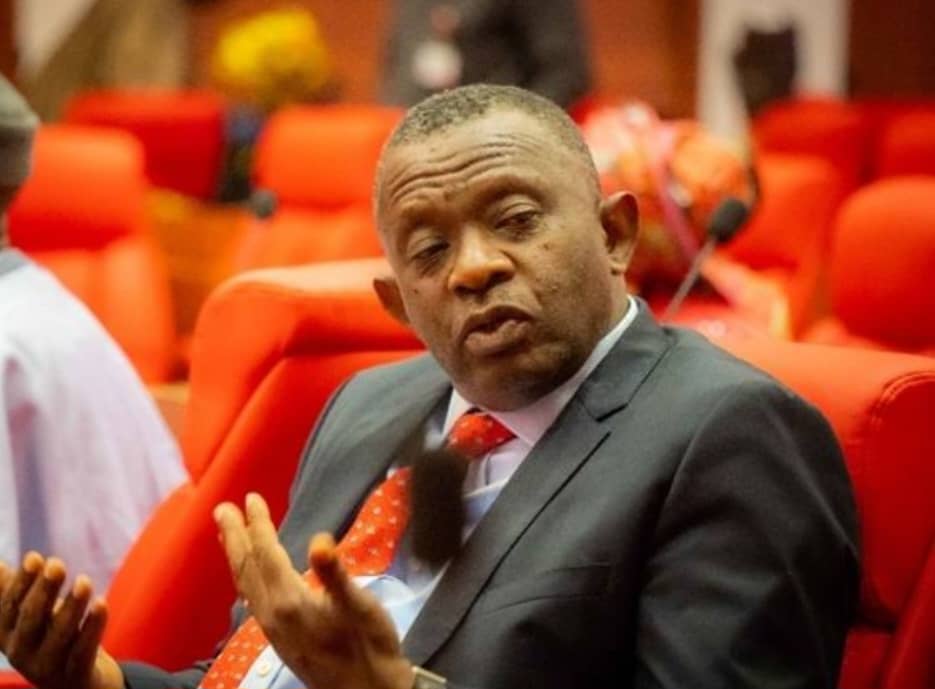

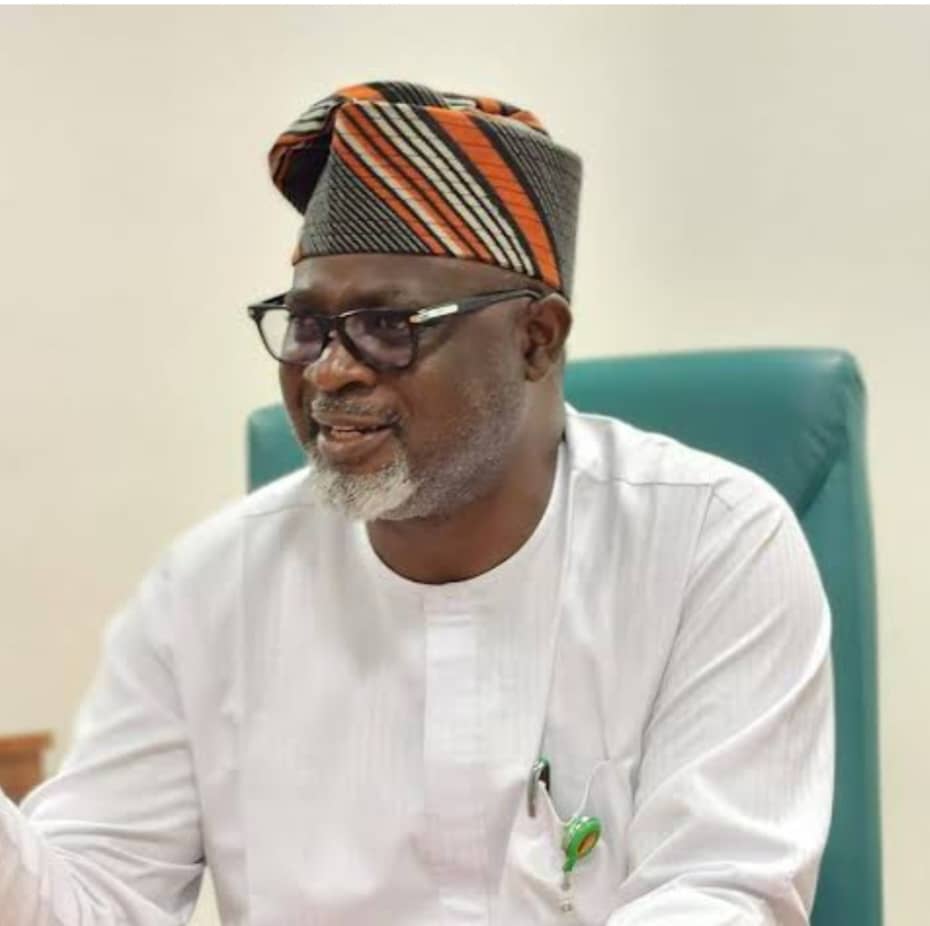
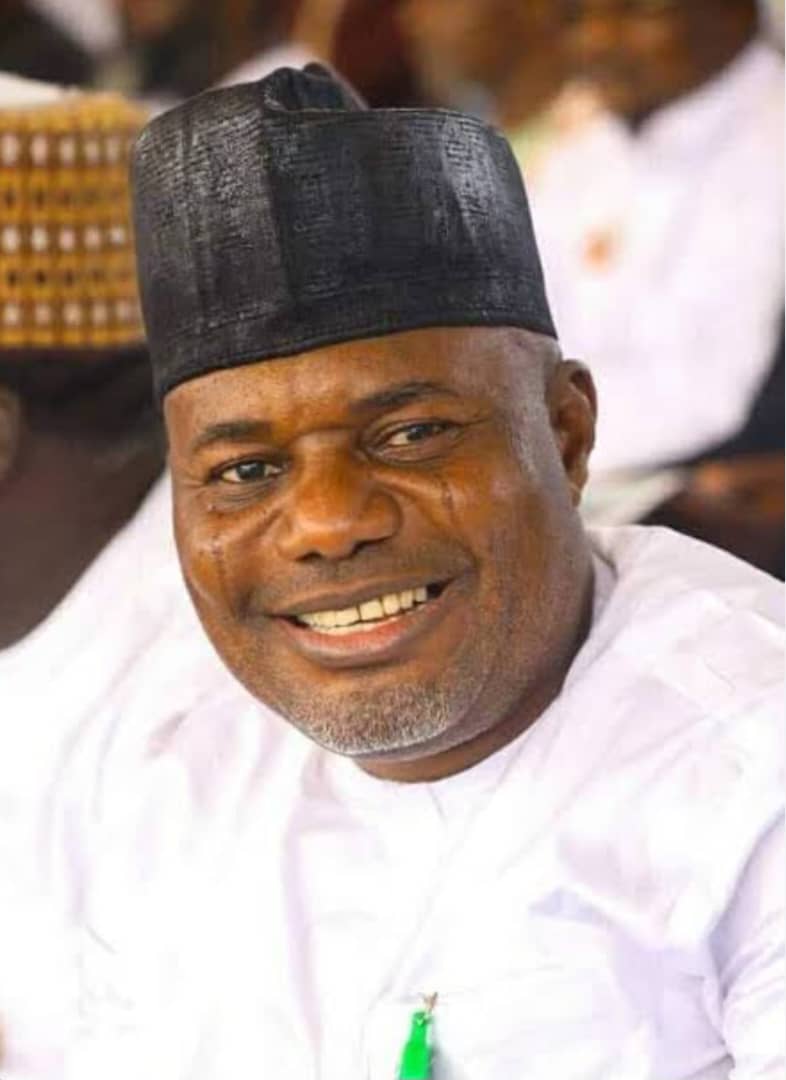
Opinion
Hon. Prof Nnamchi’s Low Social Media Presence Doesn’t Define His Output- A Reply To X User’s Observation
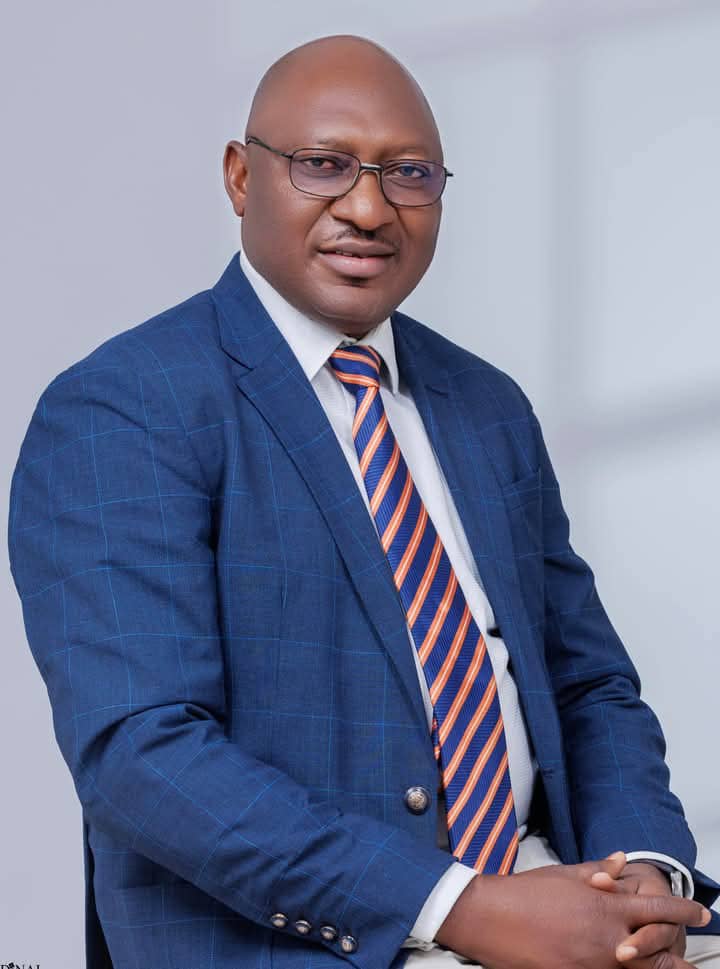
By Titus Agbo
A user on X, formerly Twitter, named Mechelito@Onyema_7, claimed that Hon. Professor Paul Sunday Nnamchi, the member representing of Enugu East/Isi Uzo Federal Constituency in the House of Representatives doesn’t post about the insecurity issues in Eha-Amufu and his efforts to impact his constituents on his X handle, @sunday_nnamchi. The user supported his claim with a screenshot of Nnamchi’s X account page.
However, it’s worth noting that Professor Nnamchi’s low online presence doesn’t necessarily reflect his efforts and output. He was raised by Catholic priests and has a humble disposition. Before venturing into politics, he was involved in humanism, providing free computer training to students in his local government area, Enugu East. This initiative, which aims to expose students to information and communication technology (ICT) education, has trained over 2,000 students as he has since expanded it to accommodate his constituents from Isi Uzo immediately he was elected into the National Assembly.
# Key Achievements
-Scholarships*: Nnamchi has offered scholarships to hundreds of indigent students from various communities within the constituency, including non-indigenes residing in Enugu East/Isi Uzo. Sewed school uniforms for pupils in primary schools and facilitated employments for a few constituents.
– *Infrastructure Development*: He deployed ₦300 million worth of solar-powered streetlights to communities in Enugu East Local Government Area last year and plans to replicate same in Isi Uzo this 2025.
– *Education and Healthcare*: Nnamchi has built and renovated classroom blocks, provided medical outreach programs, and offered free medical treatments and medications to constituents who couldn’t afford them.
– *Security*: He raised a motion on the Eha-Amufu killings on the floor of the House of Representatives on the 19th December, 2023 prompting the House to urge the Inspector-General of Police and the Chief of Army Staff to deploy adequate security personnel to Eha-Amufu and also directed the National Emergency Management Agency, (NEMA) to provide relief materials to the affected victims.
Professor Nnamchi also issued a strongly worded press statement in December 2024 reminding the relevant security agencies of the need to step up their operations in Eha-Amufu. The motion and the subsequent press statement issued the following year when the hoodlums struck again in 2024 were widely reported by both online and major newspapers as can be observed with a few examples of the publications below.
– “Lawmakers Seek Urgent Action To Address Insecurity In Enugu State” by Gloria Essien, Abuja (Voice of Nigeria online, December 4, 2024)
– “Enugu attacks: Reps urge FG to intensify efforts against insecurity in S/E” (Vanguard Newspaper, December 4, 2024)
– “Task FG to address insecurity in South East” by Ndubisi Orji (Sun Newspaper, December 5, 2024).
Nnamchi has sponsored 36 establishment and amendment Bills and numerous motions as at March 2025. The Order Paper, an authoritative in-house journal of the National Assembly, adjudged him the most performing legislator from the Southeast in 2024 ¹.
I want to assure the above X user that all Hon Professor Nnamchi’s social media accounts will be put into proper use henceforth to keep constituents like him updated with Professor Nnamchi’s legislative and constituency engagements.
Titus Agbo, a public affairs analyst wrote from Enugu
Opinion
5G,IoT and AI to boost global GDP by 2030

By Sonny Aragba-Akpore
With Mobile technologies and services now generating around 5.8% of global Gross Domestic Product (GDP) a contribution that amounts to about $6.5 trillion of economic value, there are strong projections that by 2030, this figure will rise to almost $11 trillion, or 8.4% of GDP.
Global System of Mobile Communications Association (GSMA) says much of this will be driven by countries around the world increasingly benefiting from the improvements in productivity and efficiency brought about by the increased take-up of mobile services and digital technologies, including 5G, Internet of Things (IoT) and Artificial Intelligence (AI).
The GSMA recently introduced the 5G Connectivity Index to provide insights into 5G performance in 39 markets in order to encourage informed decision-making.
In terms of Economic Impact,
the GSMA emphasizes the economic benefits of mobile technologies and services, including 5G, projecting that they will contribute significantly to GDP growth by 2030.
“The GSMA provides specific reports and analyses on 5G in different regions, such as Sub-Saharan Africa, Asia ,Middle East among others highlighting the progress and challenges of 5G deployment in specific areas.”
In Sub Saharan Africa for instance with particular attention on Nigeria,South Africa,Egypt,Kenya and Botswana among others some measure of progress in deployment has been recorded.
The rollout of 5G has brought immense benefits across multiple industry sectors, particularly those involving internet of things (IoT) and artificial intelligence (AI) applications in which the real-time transfer of data is crucial.
More broadly, the adoption of 5G is expected to accompany increased data use across the globe, with forecasts anticipating mobile data traffic of over 300 exabytes per month by 2030, more than twice the volume consumed in 2024 according to Statista.
And with a third of global population expected to be covered by this fifth generation (5G) networks ,a technology that has defined new ways of communication by 2025 ,GSMA
says the technology has surpassed growth projections of all times.
“5G subscriptions increased by 163 million during the third quarter 2024 to total 2.1 billion. 5G subscriptions reached close to 2.3 billion by the end of 2024 accounting for more than 25 percent of all global mobile subscriptions.
“4G subscriptions continue to decline as subscribers migrate to 5G” according to GSMA.
As of the first quarter of 2024, there were nearly two billion 5G connections worldwide, with 185 million new additions. This is expected to grow to 7.7 billion by 2028.”
Statistics show that 5G is the fastest-growing mobile broadband technology, reaching 1.5 billion connections by the end of 2023.
It only took four years to reach this number, compared to 10 years for 3G and more than five years for 4G.
“5G is more than a new generation of technologies; it denotes a new era in which connectivity will become increasingly fluid and flexible.5G Networks will adapt to applications and performance will be tailored precisely to the needs of the user” GSMA submits.
By covering one-third of the world’s population , impact on the mobile industry and its customers will be profound according to GSMA.
To deepen the spread of 5G ,GSMA is working closely with the mobile operators pioneering 5G, “by engaging with governments, vertical industries including automotive, financial services, healthcare providers, transport operators, utilities and other industry sectors to develop business cases for 5G.”
And In order to accelerate the growth and spread, many operators are said to be deploying
AI technology as part of an integral part of telecoms operators’ strategic and operational plans.
“Operators are making important advancements in the deployment of AI technology, which is serving as a transformative force shaping the telecoms industry. By deploying autonomous AI-based systems, operators can enhance operational efficiency, customer satisfaction and security, while also creating new revenue opportunities”.
China, South Korea, the United Kingdom, Germany, and the United States are the leading countries with robust 5G coverage in the world.
Since the first commercial launches of the fifth generation of mobile networks in late 2018, these five countries have emerged as leaders because multiple companies in these countries have deployed networks and are selling compatible devices. Countries including Switzerland and Finland are up and comers in 5G development, though they have limited deployment.
In China there are three Companies leading in deployment.
The world’s largest 5G network was launched by the three largest Chinese network operators Oct 31, 2019, according to the state-run news agency Xinhua. These are China Mobile, China Unicom, and China Telecom which all activated their networks in less than five months after they were issued 5G licenses.
Each of the network operators offered their 5G services at $18 per month in 50 Chinese cities at the beginning of the launch.
GSMA expects 36% of China’s mobile users to be using 5G by 2025. That’s about 600 million subscribers, who would also make up 40% of the entire global 5G market by this year.
This is all despite efforts made by the United States government to hamper the progress of Chinese vendors, though those efforts may affect how Chinese companies may expand into the global market.
In South Korea,SK Telecom and Korea Telecom run as the main competitors for the South Korean 5G market.
SK Telecom acquired spectrum in the 3.5 GHz and 28 GHz frequencies to prepare for deploying 5G.
In April of 2019, the Enterprise claimed to be the first mobile carrier in the world to launch 5G services to work on 5G smartphones. SK Telecom asserted an edge over rival Verizon, as the former launched 5G services available at the same time as Samsung Galaxy S10 5G smartphone launched in South Korea. Verizon launched mobile 5G services in the U.S. before a 5G enabled smartphone was available to U.S. consumers.
SK Telecom also conducted tests with a 5G Standalone (SA) Core (a core not reliant on the 4G network) for their 5G network in cooperation with Samsung Electronics.
The world’s largest 5G network was launched by the three largest Chinese network operators Oct 31, 2019, according to the state-run news agency Xinhua. These are China Mobile, China Unicom, and China Telecom which all activated their networks in less than five months after they were issued 5G licenses. Each of the network operators offered their 5G services at $18 per month in 50 Chinese cities at the beginning of the launch.
“What we are seeing is a concerted effort by the Chinese — the operators, vendors, and government regulators — to deploy 5G as quickly as possible,” Chris Nicoll, principal analyst at ACG Research, pointed this out in a November 1, 2019 SDxCentral article.
With all of these players working together, the three network operators had collectively deployed nearly 86,000 5G base stations peaked over 130,000 by the end of 2019. The latter number breaks down into China Unicom and China telecom, with each planning to install 40,000 base stations, and the market leader China Mobile to install 50,000.This was the projection by 2019 but they have since overshot this by the beginning of 2024.
The International Telecommunication Union (ITU), says 5G coverage reached 40% of the world’s population in 2023 with an uneven coverage and distribution with developed countries having more coverage than low-income countries:
In Europe ,68% of the population is covered and
Americas had 59% of the population covered while
Asia-Pacific has 42% of the population covered as at 2023.
Arab States have 12% of the population covered.
Commonwealth Independent of States (CIS) had 8% of the population covered.
ITU figures show Africa,s coverage rose to 10 % of the population by 2023 .
The ITU also notes that 90% of the world’s population is covered by 4G, but 55% of people without access to 4G live in low-income countries because In low-income countries, 3G is often the only technology available to connect to the Internet.
The ITU develops and adopts international regulations and global standards to enable the harmonization and implementation of broadband mobile networks.
In Africa, around a dozen nations have launched services including Botswana, Kenya, Mauritius, Madagascar, Nigeria, Seychelles, South Africa, Tanzania, Togo, Zimbabwe, and Zambia but Africa is a patchwork of 54 countries.
And penetration is predicted to be slow.
By 2027, Ericsson predicts that 80 percent of phone users in Europe will have 5G service.
At the same time, 5G subscriptions in Africa, home to 1.4 billion people, May stagnate at a little over 10 percent. Why will so few people in Africa get access to 5G services?
China, South Korea, the United Kingdom, Germany, and the United States remain the leading countries with robust 5G coverage in the world.
While many countries are already providing robust services,Africa remains on the outskirts of 5G services.
The countries in Africa that have launched 5G networks, include South Africa with its roll out
In March 2022, when the Independent Communications Authority of South Africa (ICASA) sold spectrum across several bands.
In Nigeria,MTN rolled out commercial 5G services in Lagos in 2022, with other roll out in Abuja, Port Harcourt, Ibadan, Kano, Owerri, and Maiduguri among others.
MTN Congo announced that it was the first country in Central Africa to deploy 5G.
In Botswana Orange deployed 5G technology to provide new services in the Gaborone and Francistown regions.
Other countries in Africa that have launched 5G Fixed Wireless Access (FWA) services include: Angola, Kenya, Zambia, and Zimbabwe.
Analysts say “5G’s potential is growing due to its ability to deliver fiber-like speeds. However, there are still challenges in the region, such as:
Urban areas are reaching their maximum capacity whereas a large portion of the population lives in rural areas.
This explains why 5G adoption in the sub-Saharan region is currently below six percent “
Analysts report that 5G deployment in Africa faces many challenges, including Spectrum assignment,regulatory issues,infrastructure,security,financial resources among others.
“Spectrum is a limited resource that is already in use by other services, such as TV broadcasters and satellite operators. Governments need to open up frequencies and grant 5G licenses at reasonable prices. “
Infrastructure is another major challenge.
“5G networks require a large initial investment, including expensive devices, antennas, and Radio Access Network (RAN) hardware. The infrastructure needs to be fiberized to support 5G services.
Regulatory conditions also serve as challenges to deployment.
For instance “regulatory authorities may not have started the process for licensing and granting frequencies in the right portion “
“Most of the equipment and devices required for 5G deployment need to be imported.”
There are also security challenges that make
5G technology vulnerable to cyber security threats, such as tracking calls and exposing user locations.
Opinion
Right of Reply: THE PUNCH AND BUSYBODY BUSINESS

The recent declaration of a State of Emergency in Rivers State has triggered diverse commentaries from a wide range of Nigerians.
Almost everyone hailed the presidential proclamation because of the visible threat to law and order in the state at the time the action was taken. Of course, there were a few naysayers who read political meanings into an otherwise sincere and prompt intervention.
One such negative interpretation is the position taken by the Editorial Board of The Punch newspaper. In one of its editorials published on the matter, the national daily claimed that the entire crisis was caused by what it described as “the needless meddlesomeness in the governance of the state by its former governor and Tinubu’s Federal Capital Territory Minister, Nyesom Wike….” It is unfortunate that this narrative and others like it have become commonplace in the media space.
How did the Editorial Board of a reputable newspaper arrive at such a conclusion? Their claim that the Sole Administrator, Admiral Ibok Ete Ibas (rtd), has been acting a script purportedly written by the Minister of the Federal Capital Territory, Nyesom Wike, is also faulty and has no iota of truth.
They also faulted the sacking of all political appointees who served in Governor Siminalayi Fubara’s administration, insinuating that their replacements were drawn from Wike’s political camp. Again, nothing can be further from the truth.
Since his appointment as the Sole Administrator of Rivers State, Admiral Ibok Ete Ibas has been running the state with the abundant human resources available in the state and has not imported anybody from outside the state. Did the Editors of The Punch really expect him to run the administration with the politicians loyal to the suspended governor?
Do they not know that the crop of political appointees who served Fubara would have found it difficult to work with the Sole Administrator?
Certainly, they know the truth, but they have chosen to stoke the fire to generate more tensions in Rivers State.
Certain interests might have commissioned this editorial to cast aspersions on the Sole Administrator and raise doubts about his capacity to run the state.
It may also have been the handiwork of Wike’s political detractors, the man whom many politicians love to hate for no other reason than envy and jealousy.
We urge the Punch newspapers to seek a better mode of intervention in the political situation and not dwell on innuendos and unsubstantiated allegations against certain political actors in order to blackmail them.
Dr Ike Odogwu
-

 News11 hours ago
News11 hours agoBREAKING! Pope Francis is dead
-

 News8 hours ago
News8 hours agoUPDATED: How Pope Francis transited, last activity, health challenges, others
-

 News15 hours ago
News15 hours agoRetirees with outstanding loans may lose property – FG
-

 News16 hours ago
News16 hours agoSad as hotelier slumps, dies at wife’s 60th birthday thanksgiving
-

 Metro16 hours ago
Metro16 hours ago77-year-old Nigerian Uber driver shot dead in US, passenger in critical condition
-

 News11 hours ago
News11 hours agoFemi Ojudu: We Understand His Bitterness Being A Political Coupist– Lere Olayinka bombs Ojudu over comment on wike
-
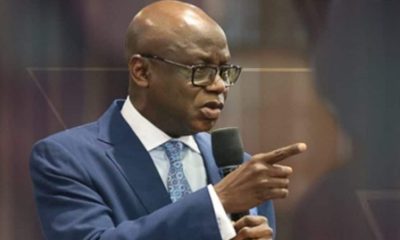
 News16 hours ago
News16 hours agoBakare criticizes Tinubu, says his ‘motor park’ politics has destroyed NASS
-

 Politics11 hours ago
Politics11 hours agoSenate postpones resumption of plenary sittings to May 6

















